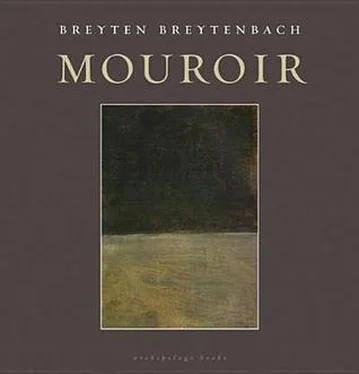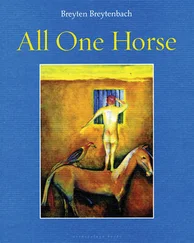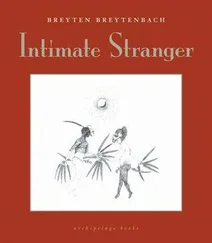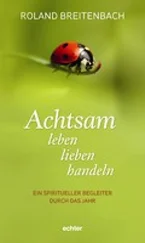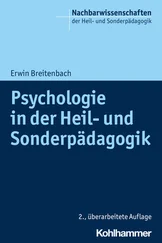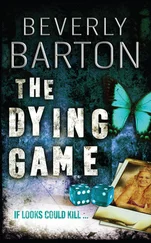Somewhere in that high country was the house where we would stay. So far back it is now that I no longer remember how much time we whiled away there: maybe only a few days, maybe months on end. Time had no constitution then, no skin or cells or pattern or feeling. Time was a cold crystal, transparent, a spectrum, a stalactite or a growth with every century a single drop. My realization of time silted up. But now, much later, it is a physical pleasure to fetch it from somewhere within the unknown folds of the self, to find the thread and to start reading, to dredge the self’s receptacles. A curettage. The house was built of weathered grey planks long since gnawed at by the darkening of all things passing, by the finest hardly visible particles of mica which when whipped up over the flats by winds had to be hurtled against something in the end, by the corrosion of saltiness in the condensation of the night. A dilapidated stoop, knocked together from planks in the same fashion, provided a kind of platform to one side of the house. Over this small stage there was a lean-to propped up by four wooden pillars not really very solid any more. From the stoop the drawing room could be reached and the two windows giving on to the front were laced with curtains. These two curtains might have been white once upon a time but now they were barely a lighter shade of grey than the tremendous world outside. They were the only windows so endowed; peradventure they were the only two windows in the house. Around the house then was the area designated by us as the “yard”, but who could ever tell where its limits were, where the yard stopped and the waste land began? “Yard” was a “convention”, an “agreement” — an oval-shaped imagined zone around the house with its outer boundary never more than twenty-five yards away, perchance a little more tamped down than the rest, and indicated as “living space” by garbage and implements — mirrors, cardboard boxes, chains — which at times could be found there all strewn about. The only other compromise towards the taming of the farmstead was that which we planted there and which never grew — flowering shrubs, bushes, even trees. With enormous trouble we transported grown trees, for instance, from the coast to the house — along the way the leaves and fruit dragged in the dust: it was the abduction of an exotic princess from a far-off empire; we then dug a deep hole and made the tree to stand upright in it. Occasionally it took several weeks, months even, before the transplanted tree shrivelled up entirely and had to be unearthed — that is, if it hadn’t tilted over all by itself in the meantime — eventually for firewood. But never it took root. Trees or brushwood, anything that could capture the wind and give it sound, is so always needed around a house. Because otherwise you lose all memory of yourself and are gobbled up by nothingness to become part of the night.
On the flat area before the veranda we had erected a target for shooting practice, a plate on which was painted a man. We had one pistol, very sacred to us, which we guarded jealously. Above our heads the sun traversed the blueness like a gigantic jet seemingly moving slowly only because it is flying so incredibly high. Everywhere about us the reach and the shuddering of the silver landscape. No shadows at all except for our own, the house’s cape, shards and blotches from the transplanted trees. But their leaves were already wilted and dust-coated — as corpses planted up to the waist in corruption they were decomposing in leaves and twigs. We took turns aiming at the target. Tjak was always the one enjoying the shooting the most. “Aber es freut mich!” or sometimes also: “Dennoch freue ich mich daran!” he called out time and again. I became aware that my eye was out, or alternatively that the sight of the pistol was not adjusted to my eye. Although I could group all my shots in a small circle — we had pasted white sheets of paper over the painted man’s vulnerable parts to in this way establish our acumen — they were for ever too low, too far to the left. Purposefully I tried to adapt by taking a bead on the top right-hand corner, hoping to place my shots in the desired bull’s-eye. I was, with one eye closed to a slit, still busy trying to elucidate this aberration to my comrades when I became aware of their not paying any notice to my explanation. Something else had a priority claim on their attention. Alarm! They were silent, the heads rapt and alert as those of birds all turned in a certain direction. I lowered the arm with the cocked pistol and followed the attraction point of their eyes with mine, attempting to make out what it was they were staring at so distractedly: over the floor of the grey plateau a group of men moved, and evidently on their way to us. Far away we could hear small bells throbbing. There are no fixed routes over this vast highland, no paths or true crossings, and I have never yet seen a company of travelers trekking over its rims. Nevertheless it had to be possible, it had probably even occurred, that people all through the ages journeyed here. Who could deny or affirm that vegetation flourished in these parts long ago, that there were yurts or farmsteads or even inns here and, who knows, perhaps cities with canals filled with lapping water. Dust. All dust now. Passed and extinct. Or had it always been thus? Nothing, no indication or track could ever prove the hypothesis or its refutation. Still, these two extremes were reconcilable, eventually one: the nothingness contains traces of what was — aren’t we all, and everything around us, finally the wind-blurred drawings of the structure of decay? But this troupe now, although still quite a way off, clearly carried threatening implications for us.
“Mensch, was ist denn los jetzt?” Tjak murmured.
The purpose of the visit of the observed group wasn’t clear except that it contained no promise of good for us, and we therefore thought it wiser to take certain precautions because they were numerous — far more so than us. We entrusted Tjak with our pistol and with the instruction that he must make himself scarce: our intention, in so doing, was to safeguard our only weapon and property of value. Within a few hours evening would fall and under the cloak of the night, for there was no moon, Tjak would have had a chance to reach a safe haven with the pistol, or at least the protection of distance. In the meantime we would attempt to occupy the unwelcome intruders and to hold them back.
Our uneasiness had good grounds, our fears were realized. It turned out to be Albert and his gang, and faced with their superior numbers we were soon powerless. Without too much bother they took over everything and held us captive in the living room while they searched the house from floor to loft. For us time no longer mattered. But gradually it became night and, as was often the case at that hour, an evening breeze started blowing; the grey curtains fluttered slightly. The wind — experience had taught me this — would become stronger towards midnight, a veritable sighing, and the tarrying heat would as always make way for the pure-skinned lucidity of the night and then for the merciless cold of the small hours, for the sharp reflection of starlight on stones, like ice pellets. Albert apparently surmised — or did he know? — that one of us had eluded him, that our firearm had slipped through his fingers: he delegated members of his gang to go over the surroundings within a radius of one and a half kilometres with a fine-tooth comb. It became dark.
When the gloom had settled in completely we all heard the crack of three pistol shots in the distance, two near together and after a pause of what must have been three seconds a single last one. Afterwards nothing. All lifted their heads and listened to the silence with ears pricked up. Nothing more. Nobody talked. No one referred to the strange detonations. Later too, as far as I remember, no explanation was offered and it was never discussed. In the course of the first quarter of the night the search parties returned — whether all or just some of them wasn’t clear and neither do I know whether they reported on their doings. We became drowsy. Now and then you could hear someone groaning in his sleep. Albert sat in one corner on a chair, his heavy head bowed, chin on chest; it was no foregone conclusion that his eyes were still open or, on the other hand, closed. In any event, he asked no questions, gave not a single order, didn’t try to start any conversation; just hunched there without budging, peering down into his private night.
Читать дальше
